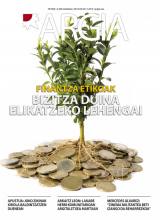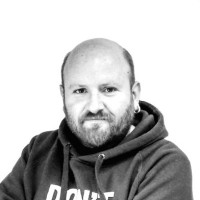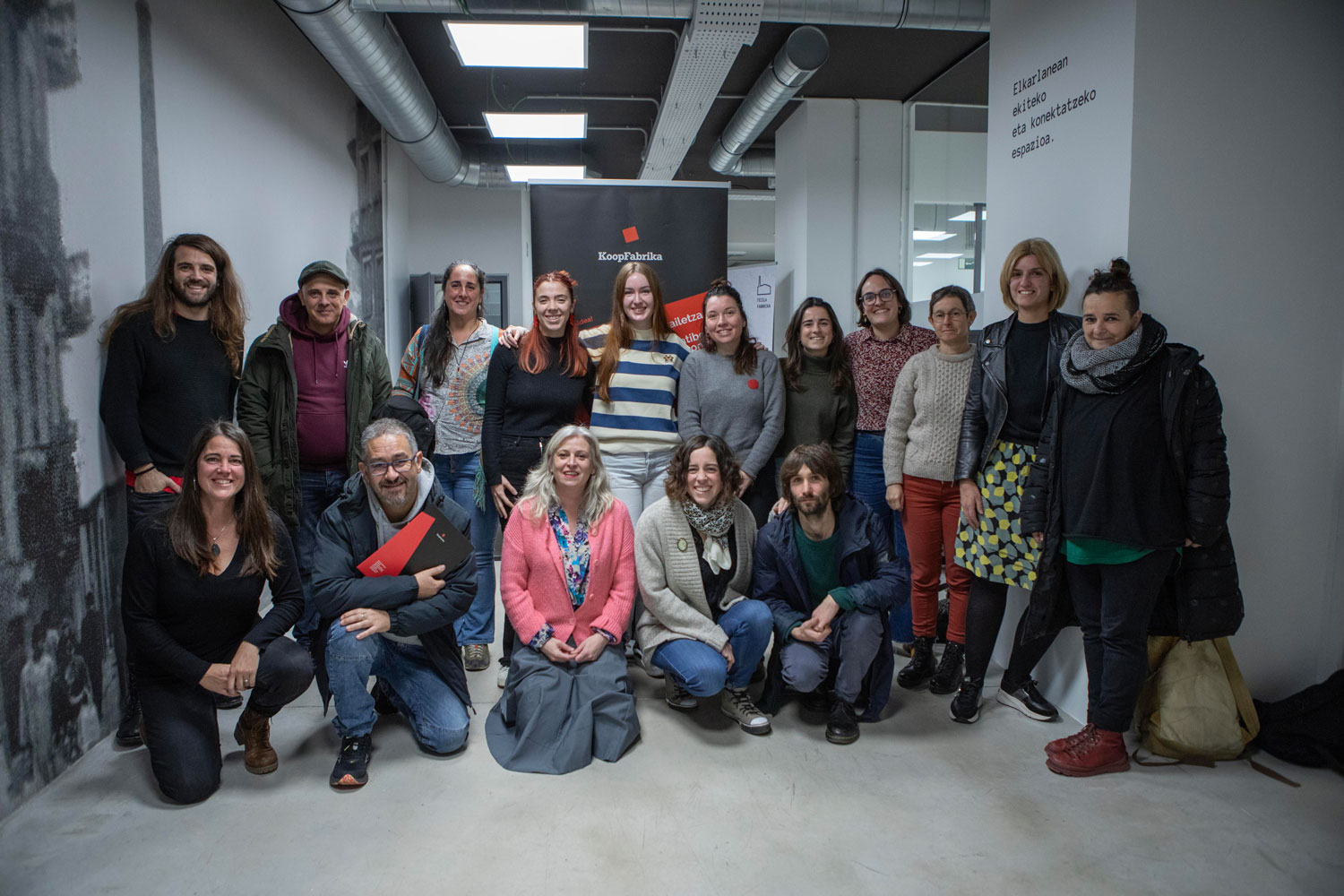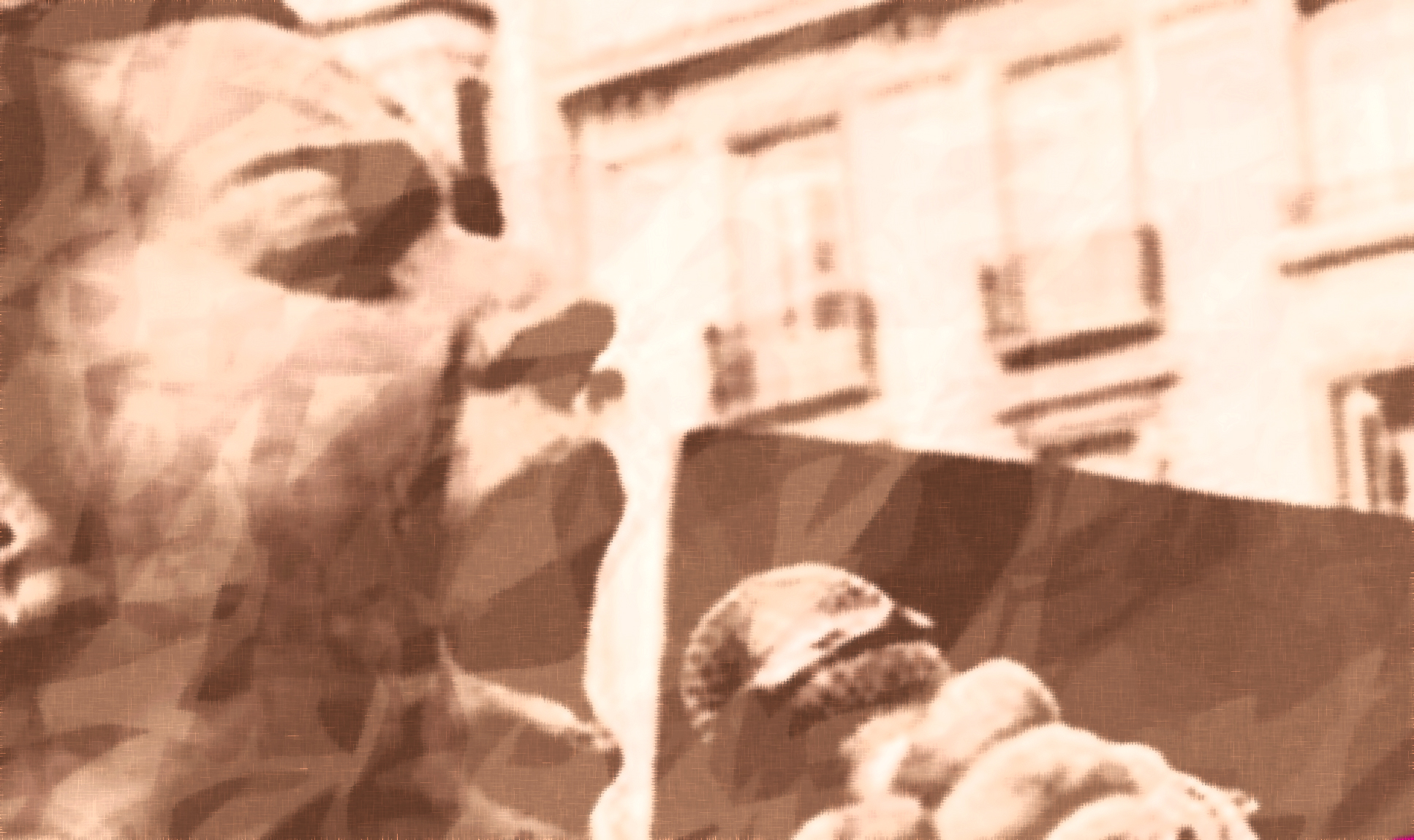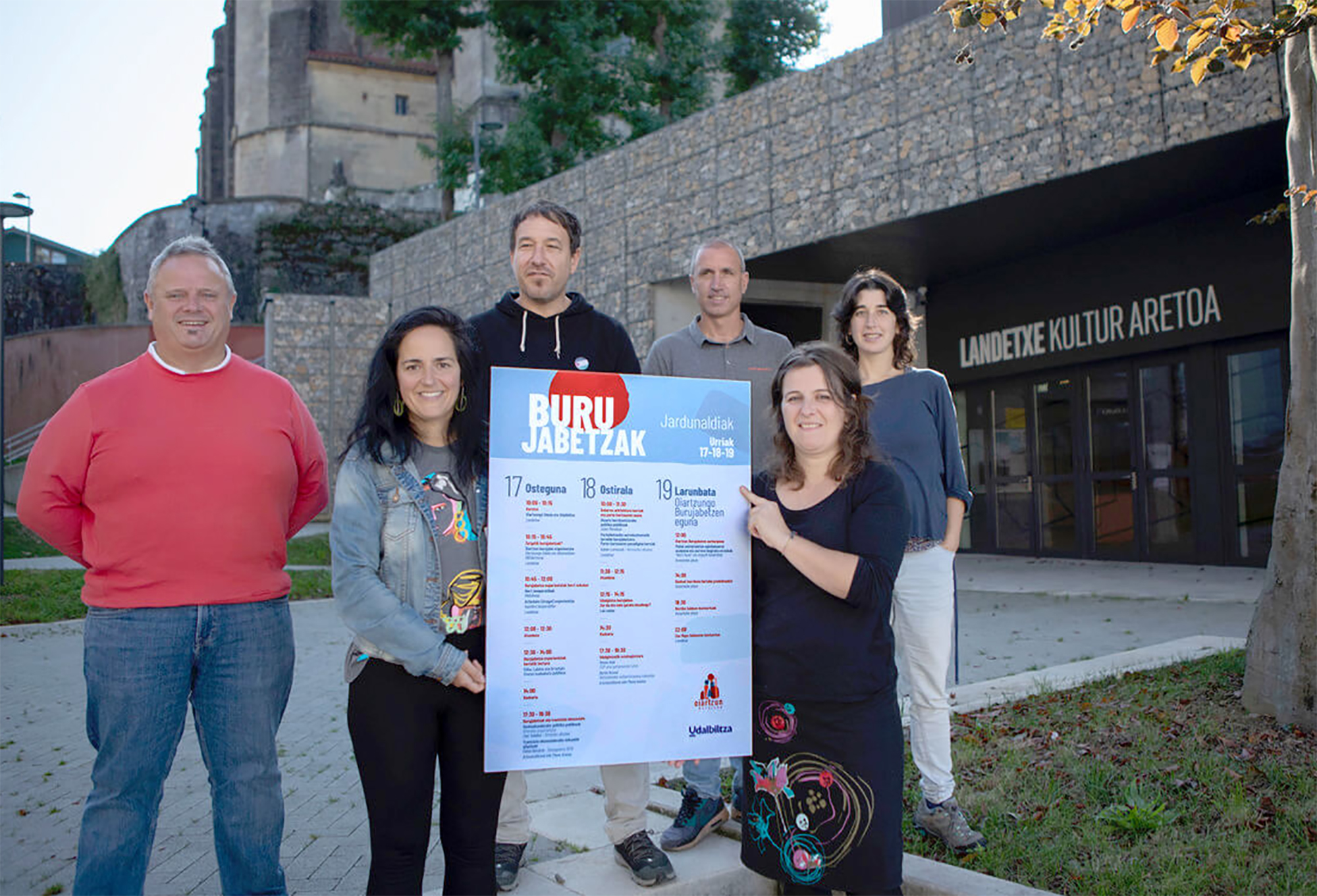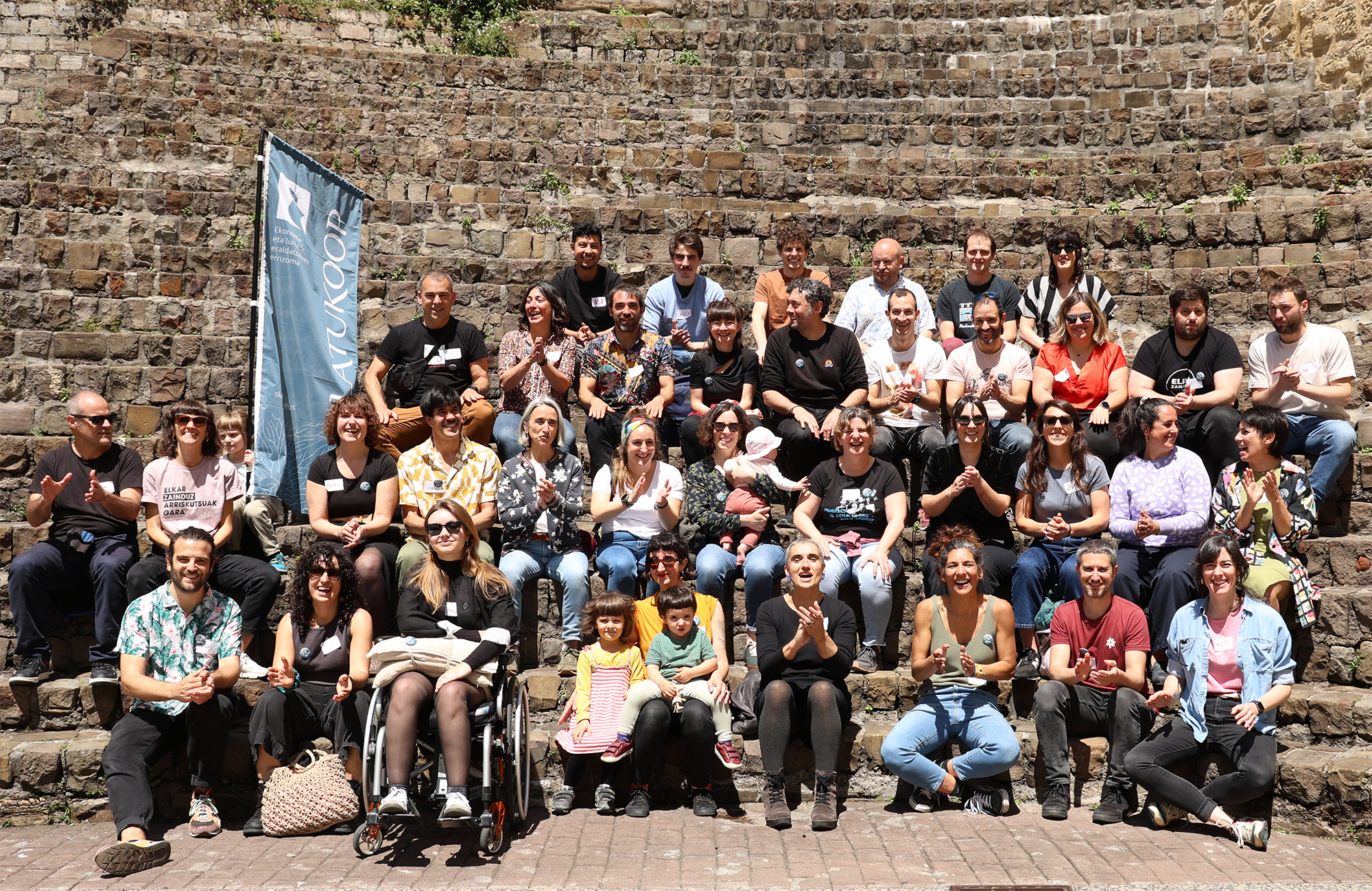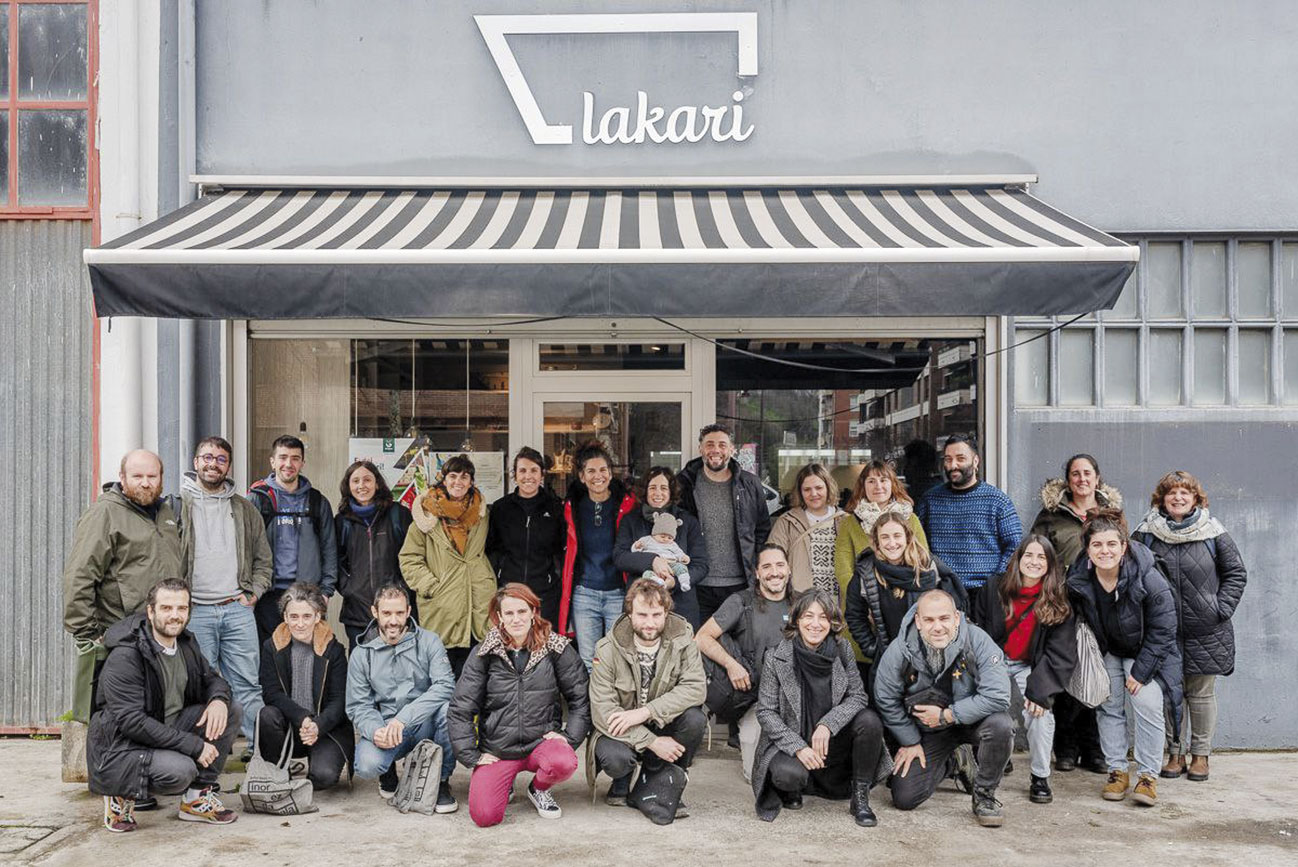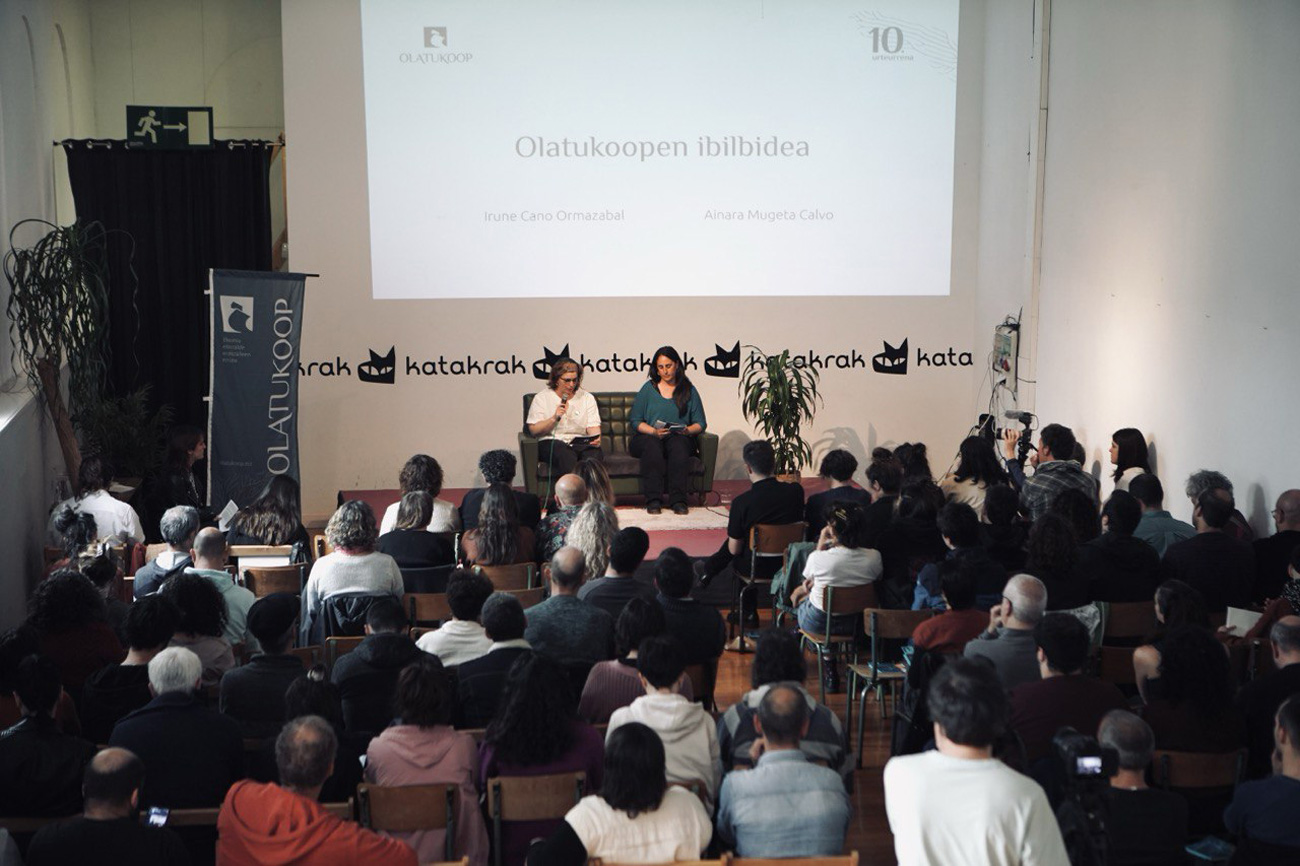And your savings, what do they promote?
- It seems simple: conventional financial institutions take advantage of our savings to provide loans and investments. It's the raw material and the source of power. However, despite the fact that our contribution is essential, we rarely know the course of the salaries we have laid. Do we not have the right to decide what is being promoted with our money? We have looked at a number of projects that make it possible.
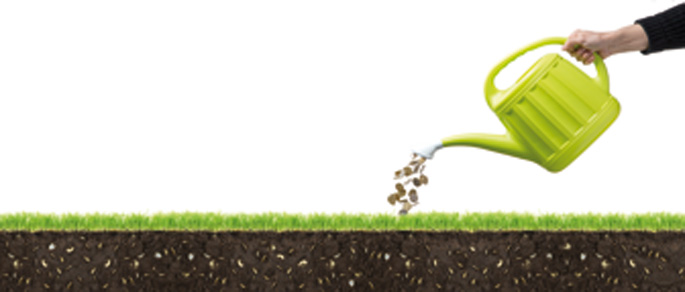
Just look at the news items: evictions, bailouts paid with public money, corruption cases, fraud like the preferred ones… If you ever had it, banks, savings banks and traditional financial institutions have long lost a good reputation. And behind everything, a question. Are they, or at least senior officials, responsible for the economic and social inequalities that the crisis has widened?
Cristina de la Cruz (Professor,
University of Deusto):
“The use of our money can help to continue with this economic system or, on the contrary, can help implement more just, fair and supportive alternative models”
Cristina de la Cruz Ayuso is a professor at the University of Deusto and an expert in ethical finance. As you said, the financial institutions have their responsibility for the economic crisis and its consequences, but the original problem is structural. “Traditional financial institutions are the development currents of capitalism and we can say that they are responsible in this sense, but neoliberal capitalism is responsible for the crisis.”
Liher González Bilbatua also agrees. He is a member of Koop57, which offers ethical and solidarity financial services. “Until now, it has been argued, like all other areas of capitalism, that the financial system should function better without control measures.” It says that finances affect all sectors and that the effects of their failures have therefore spread to the whole of society.
Alternatives as a political tool
Beyond the financial institutions that we can describe as “common”, there are alternatives set in motion with the aim of leaving behind speculative logic and promoting a different model of society: ethical finance. They offer the possibility of deciding what will be used to promote own savings.
It is clear from the Cross that those working in the field of ethical finance are political projects: “From practices, they intend to democratize financial relations by developing new ways of generating social power.” In this regard, it has underlined the instrumental nature of such projects, as funding is essential in the development of the transforming social economy. But he says there's more to it than that. “As in other aspects of people’s daily consumption, ethical finance proposes an economic militancy to transform society, because the use of our money can help to follow the economic system or, on the contrary, help to establish alternative models that are fairer, fairer and more supportive”.
Participation and transparency as a basis
After the name of ethical finance there is not only an ethical perspective, there are several that differentiate it from the traditional financial logic.
Liher González
(Koop57):
“We make a way to the will of capital and if we want to break the model so far, we will have to start to change our customs”
specific characteristic. One, of course: what and why is it funded. According to Liher González, instead of doing business, the transformation is financed to boost it, and those who bring their savings do not do so for profit. This is reflected in the conditions to be met for obtaining loans. Although each project has its own criteria, NGOs, small cooperatives, etc. are generally supported. They work in social transformation. On the contrary, the loan is denied to initiatives that are merely intended to obtain economic benefits. In addition, the partners who support these ethical financial institutions, in addition to being aware of all loans, have the possibility to participate in decisions.
De la Cruz, although in other words, refers to similar characteristics: “Ethical finance tells us that to reverse financial intermediation it is necessary to build on a network of people and institutions that approach without seeking economic profitability; that wages must be limited between management positions; that customers know what happens to their savings; that transparency must be guaranteed throughout the entire trajectory of money; that operations that seek exclusively economic profitability and invest in certain areas …”.
What hinders the way?
More than one thought: if the advantages are so obvious, why do most of us still have our savings in the usual institutions? Or, as proposed by the French movement StopBanque and former footballer Eric Cantona, why don't we get all that money out of the way?
The numbers show that there are few who have made such decisions: In the Spanish State, for example, 90% of deposits and loans are available to the six large banks. These data were provided by the Valencian economist Joan Ramón Sanchís in an interview with the Association of Consumers of Banks and Savings Banks of July 2015.
"Behind the name of ethical finance there is not only an ethical point of view, there are traits that go beyond the logic of traditional finance. A highlight: what and why is it funded?
Liher González thinks it has to do with not wanting to leave our comfort. “We make a way to the will of capital, and if we want to break the model we have had, we have to start changing our customs.” It also says that ignorance is a reason, because many people do not know that there are financial instruments of this kind.
Joan Ramón Sanchís himself attributes it to the lack of knowledge: “Ignorance generates mistrust, but there have been ethical banks in Europe for 50 years and they have shown that they are as socially and economically viable.” But to all this adds another reason, the lack of physical offices. Now that we have become accustomed to finding traditional ATMs anywhere, ethical financial institutions that provide banking services operate mostly through cards or networks.
Despite this, more and more are taking the step every year. Between 2008 and 2014, for example, the ethical banks of the Spanish State multiplied their savings by six in the whole of Spain.
KOOP57: Ekonomia sozial eraldatzailea bultzatzen
Koop57 aurrezki etikoa bultzatzen duen finantzaketa zerbitzu kooperatiba da. Ekonomia sozial eraldatzailea oinarri duten proiektuak maileguz laguntzen ditu; horizontaltasunean oinarrituta, gardentasunez eta gizartea eraldatzeko asmoz jarduten dute proiektuok. Ez du Fiare banku etikoaren moduan banku-fitxarekin operatzen, ez dauka aukerarik kutxazainak eta bestelako finantza produktuak edukitzeko, baina aldi berean ez ditu Espainiako Bankuak ezarritako araudi eta interes-tipoak kontuan eduki behar.
Kooperatibako bazkideak bi motatan bereizten dira: proiektuak babesteko aurrezkiak uzten dituzten bazkide laguntzaileak daude batetik: eta bestetik, aurrezkiak uzteaz gain, maileguak ere jaso ditzaketen zerbitzu bazkideak: kooperatibak, GKEak…
Kolektiboki, asanbladan erabakitzen da zenbateko irabazia izango duen diru ekarpenak, balioa ez galtzea oinarri hartuta. Babestu dituzten proiektu guztien berri izateko aukera ere badute bazkideek. Haietako bat izateko, 300 euroko gutxieneko ekarpena egin beharra dago.
Oikocredit: Hego hemisferioari begira
Hego hemisferioko herrialdeetan pobreziari aurre egiteko bokazioa duten proiektuak maileguz laguntzen dituen sozietate kooperatiboa da Oikocredit. Nazioarteko organismo zentralean erabakitzen dira maileguen eta inbertsioen gorabeherak, baina mundu osoan ditu jardun hori ahalbidetzen duten 30 elkarte, 13 herrialdetan. Tartean, Euskal Herrian ere bai.
Kooperatibako bazkide izateko, gutxienez 200 euroko inbertsioa egin beharra dago, kapitalaren erosketaren bidez; horrek Oikocredit Euskadiren erabaki guztietan parte hartzeko aukera ematen dio ekarpena egiten duenari. Sozialki sortzen duen onuraz gain, ekonomikoki ere errentagarria da gainera: urteko asanbladan erabakitako ehunekoa –%2 izan ohi da– gehitzen baitzaio urtero nor-beraren inbertsioari.
Gardentasunari dagokionez, bazkideek modu asko dituzte beren diruarekin laguntzen diren proiek-tuen berri izateko. Webgunean duten datu-basea kontsultatzea da modu errazena, baina horrez gain, laguntzen dituzten proiektuak bertatik bertara ezagutzeko bidaiak antolatu ohi dituzte. Baita bertan lanean ari direnak Euskal Herrira ekarri ere.
FIARE Banca ética: Erroei eutsiz, apustua handira
Euskal Herrian finantza etikoen barruan dagoen ekimenik handiena da, eta oinarri soziala duten proiektuak laguntzeko bokazioa du. Denera 4 milioi eta erdi euroko ekarpena egin duten 450 entitate eta 3.000 pertsona laguntzaile ditu. 2003an eratu zen Euskal Herriko hainbat gizarte erakundek bultzatuta, eta gaur egun, Espainiako Estatuan eta Italian jarduten du, 2013an Banca Popolare Etica italiarrarekin elkartu baitzen.
Koop57 edo Oikocreditek ez bezala, aurrezkiak gizarte ikuspegiko maileguei bideratzeko aukeraz gain, kontu-korronteak eta orotariko txartelak eskaintzen ditu Fiarek. Internet bidez ordainketak eta kontsultak egiteko aukera ere ematen du. Hori guztia egiteko ez dago bazkidea izan beharrik. Bazkideek ordea, baldintza mesedegarriagoak dituzte zerbitzu horietan, eta horrez gain, erabaki garrantzitsuenetan parte hartzeko aukera.
Tarteka egiten dute, izarrez jositako Hollywood horretan, kapitalismo neoliberalari maskara erantzi eta den bezain ilun irudikatzen duen film bat edo beste. Zalantza pizten digute: ez da izango egia erdia esanda, beste erdia ezkutatzeko saiakera? Ez al zuten egingo txalo eta salmenta onez haragoko erreakziorik piztuko ez dela badakitelako?
Akaso ez dira urrun ibiliko filma ekoizteko sosak jarri dituztenen burutazioak, baina berriki moldatutako gidoi onenari Oscar saria jaso duen The Big Short-ek inor gutxik egin duena lortu du: 2008an lehertutako krisiaren oinarrian dagoen espekulazio jokoa edonork ulertzeko moduan azaltzea. Finantza erakundeen diru gose basatia, erakundeen axolagabekeria… Funtsean, milioika herritarron aurrezki eta zorrak pokerrerako fitxa bihurtzeak dakarren guztia.
Baina finantza eredu orokorraren azpikeriak erakusteko ez da super-ekoizpenetara jo beharrik. Gobernuz kanpoko hainbat erakundek osatzen duten Setem federazioak Zure diruarekin dokumentala egin zuen 2012an. Hainbat adituren iritziak bilduz, ohiko finantza erakundeek gure diruarekin armagintza eta antzeko sektoreak laguntzen dituztela salatzeaz gain, Espainiako Estatuan martxan dauden hainbat alternatiba azaltzen ditu.
Gure lurraldeetan eta bizitzetan sortzen diren behar, desio eta ekimenen inguruan gero eta gehiago entzuten dugu harreman eta proiektu publiko-komunitarioak landu beharraz, eta pozgarria da benetan, merkaturik gabeko gizarte antolaketarako ezinbesteko eredua baita. Baina... [+]
Budgets and the closure of annual accounts are nothing more at this time, from the domestic economy to most of the socio-economic spaces that we share. Large companies have begun to extract calculators and implement major plans for 2025. Small and medium-sized institutions and... [+]
I write these lines the day after the elections to the European Parliament, the dark times, the triumph of the Reactionary International in the elections to the European Parliament. It was already in advance and it is the confirmation of the conservative phase we live in, but it... [+]









